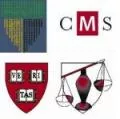
Harvard-MIT-Yale Cyberscholar Working Group
at the Berkman Center for Internet & Society
Wednesday, April 20, 6:00PM
Berkman Center for Internet & Society, 23 Everett St. 2nd Floor
RSVP to Amar Ashar ([email protected])
The "Harvard-MIT-Yale Cyberscholar Working Group" is a forum for fellows and affiliates of the Comparative Media Studies Program at MIT, Yale Law School Information Society Project, and the Berkman Center for Internet & Society at Harvard University to discuss their ongoing research.
This month's presenters will include:
Acting in the networked public sphere: the Obama campaign’s strategic use of new media to shape narratives of the 2008 presidential race
Daniel Kreiss, Yale Information Society Project
While many scholars provide analytical accounts of the "networked public sphere" (Benkler, 2006), outside of a few case studies (Karpf, 2010) little is known about how campaigns act within it to drive media narratives of electoral politics. As a number of scholars have documented, sociotechnical changes over the last decade have resulted in professional media outlets, civil society organizations, governmental actors, political blogs, campaigns, and citizens interacting to an unprecedented extent to produce political culture. Building from recent work that analyzes how these actors produce "political information cycles" (Chadwick, forthcoming) shaped by the particularities of "networked news ecosystems" (Anderson, 2010), this paper provides an in-depth look at the new media messaging practices of the Obama campaign. Through interviews with much of the campaign's New Media Division, this paper details what staffers valued in the networked public sphere, the interaction of actors within it, and the sociotechnical dynamics on new media sites and within ecosystems that helped shape what content gets attention. I show how the campaign, much like its predecessors, defined 'winning the day' in terms of professional broadcast media values and audiences. The paper also shows how the campaign leveraged platforms such as YouTube and sites in the progressive "netroots" for the at times surreptitious circulation of content attacking other candidates. As such, the paper reveals how new media offer new venues for campaigns to disseminate strategic, and often anonymous, political communication.
Daniel Kreiss is a Postdoctoral Associate in Law and Fellow of the Information Society Project at Yale Law School. He is currently working on a book titled Taking Our Country Back: The Crafting of Networked Politics from Howard Dean to Barack Obama (Oxford University Press, 2012). The book tells the history of new media and Democratic politics over the last decade and reveals how a group of young internet staffers came together on the Dean campaign, created innovations in online electoral politics, and helped bring about a number of subsequent victories, including Obama's historic bid for the presidency. Daniel received a Ph.D. and M.A. in Communication from Stanford University and a B.A. in Political Science from Bates College. Daniel will be an Assistant Professor in the School of Journalism and Mass Communication at the University of North Carolina at Chapel Hill beginning the 2011-2012 academic year.
= = =
Online News and the Red Queen: Power Laws, Traffic Churn, and Why Saving Journalism Is Harder Than We Think
Matthew Hindman, George Washington University & Berkman Center Faculty Associate
Though it is now common to assert that online audiences follow a (rough) power law distribution, myriad processes--with very different implications--can produce power laws. Using a new data source with years of daily traffic data for thousands of sites, I shed new light on how these power law patterns are produced in Web traffic. I show that (1) the largest sites are far more stable over every time scale than smaller sites, and that (2) site traffic volatility grows in a regular, exponential fashion as sites get smaller. This pattern is a general property of Web traffic at nearly every level.
Simulations demonstrate that this statistically regular pattern in traffic churn--by itself--is enough to produce and maintain a power law. Even if sites start with equal traffic, a power law quickly emerges. Moreover, there is as necessary relationship between the traffic variance sites have, and the slope of that power law.
These findings show the future of journalism in a very different light. While the structure of the online news audience is stable, all but the largest sites face an uncertain future. The volatility of small sites is especially consequential for Web-native local news organizations, which have an extraordinarily high death rate and few--arguably zero--obvious success stories. I argue that the central problem facing digital news organizations is not lower per-reader revenue but radically more variable revenue, and that successful national online-only news sources demonstrate classic institutional responses to unpredictable revenue streams.
Matthew Hindman is a faculty associate at the Berkman Center and an assistant professor in the School of Media and Public Affairs at the George Washington University. His book The Myth of Digital Democracy (Princeton Press, 2009) won the Goldsmith Prize and the Donald McGannon Award. His current book project is on the political economy of the online public sphere.
= = =
Best of Both Worlds: Issues of Structure and Agency in Computational Creation, In and Out of School
Karen Brennan, MIT Media Lab
Hundreds of thousands of young people have created more than 1.7 million interactive digital media projects with Scratch and shared those projects with others through the Scratch online community. How can we make the best computational creation experiences that take place in this learning environment, which is characterized by low structure and high learner agency, accessible to more young people in learning environments like schools, which are often characterized by high structure and less learner agency? In this talk, I will describe how the online community and school contexts enable – or do not enable – young people to develop as computational creators, and what these contexts have to offer each other.
Karen Brennan is a PhD candidate at the MIT Media Lab, a member of the Scratch Team, and leads the ScratchEd project. She studies the ways in which learning communities support computational creators.
